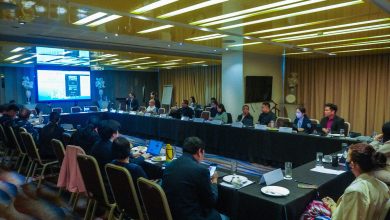Kantar TNS, one of the world’s largest research agencies with experts in over 90 countries, recently launched the 2018 Corporate Reputation Study, a quantitative program about the operations of the different banks in the Philippines. This study is a follow-up to the same survey conducted in 2008. Kantar TNS research showed that BDO has overtaken Metrobank and the Bank of the Philippine Islands (BPI) and come out as the most reputable bank in total ranking this year, moving up two places from No. 3 in 2008.
The study focused on the bankable segment of the population, particularly class ABC financial decision makers in the Greater Manila Area (GMA) and Metro Cebu. Among the topics discussed during the interviews with 800 respondents were awareness of banks, bank patronage (e.g. loan/deposit products availed, length of relationship), touchpoints, and attitudes to financial activities, banking and financial technology.
Kantar TNS’ corporate reputation model focuses on five dimensions driving a bank’s reputation, namely: overall reputation/renown; favorability; trust; success; and product & service quality.
Top performing banks in PH from 2008 to 2018
Several banks enjoy an uplift in reputation, benefitting from the positive performance of the sector. “Consumers are taking notice of efforts to consolidate and strengthen the banking industry,” said JV Villabroza, Head of Kantar TNS.
BDO ranked no. 1 in total ranking, and in GMA. On the other hand, albeit with softening reputation, Metrobank manages to maintain its lead in Metro Cebu, while BPI and BPI Family placed second in both GMA and Metro Cebu. Government-operated banks such as the Philippine National Bank (PNB) and Landbank complete the top 5 list. Meanwhile, the study shows RCBC, RCBC Savings and Security Bank as having major gains on reputation over this 10-year period, now joining the pack of high reputation banks.
BDO’s reputation among consumers in GMA has strengthened over the years (from 79 percent in 2008 to 90 percent in 2018), with success positively driving this increase, a positive consequence of its dominance in the local market and the expansion of its network and capabilities globally. Big gains on the product & service quality dimension has also lifted BDO’s reputation.
However, reputation has softened for BPI (from 80 to 73 percent in total ranking) and Metrobank (84 to 73 percent in total ranking). Trust, favorability, and product and service quality are the factors pulling down the scores for both banks, data from Kantar TNS reveal.
In the advent of digital, the standards of convenience and comfort have evolved. Being a bank that customers feel comfortable to deal with, is well-managed, and has comfortable bank premises were BPI’s strengths in 2008, but are now seen by consumers as areas they should improve on moving forward.
According to the research, Metrobank, which ranked first in terms of bank reputation in 2008, lost some of its luster, particularly in GMA. Respondents suggest that Metrobank look into its 24/7 customer service and providing easy access to funds for its customers as areas for refinement.
Driving reputation and patronage of Filipinos
Business performance (stability and leadership in the industry) and good customer relations (making banking a welcoming and easy experience) positively drive reputation among consumers, based on the results of the Kantar TNS research. On one hand, ease of access and prompt service delivery are key to maintaining a high banking reputation, particularly for millennials. On the other hand, for the older generation, having comfortable and secured bank transactions are important considerations in choosing a banking partner.
According to Kantar TNS, banks should adapt to the mobility and agility of its customers, while ensuring that the trust established by the traditional brick-and-mortar banking is retained and reinforced.
With technology continuously disrupting consumer behavior, evident in the rise of fintech catering to loans, deposits and payment systems, banks should be ready to adjust to be more relevant in the changing business environment. “The expanding influence of social media makes brands easily vulnerable to tirades and damaging attacks. The stakes are high. Thus, it is crucial to have a clear and actionable direction on how to develop, establish, secure or rebuild reputation to make banking brands much more resilient in the digital age to achieve continued success in their operations,” Villabroza said.









